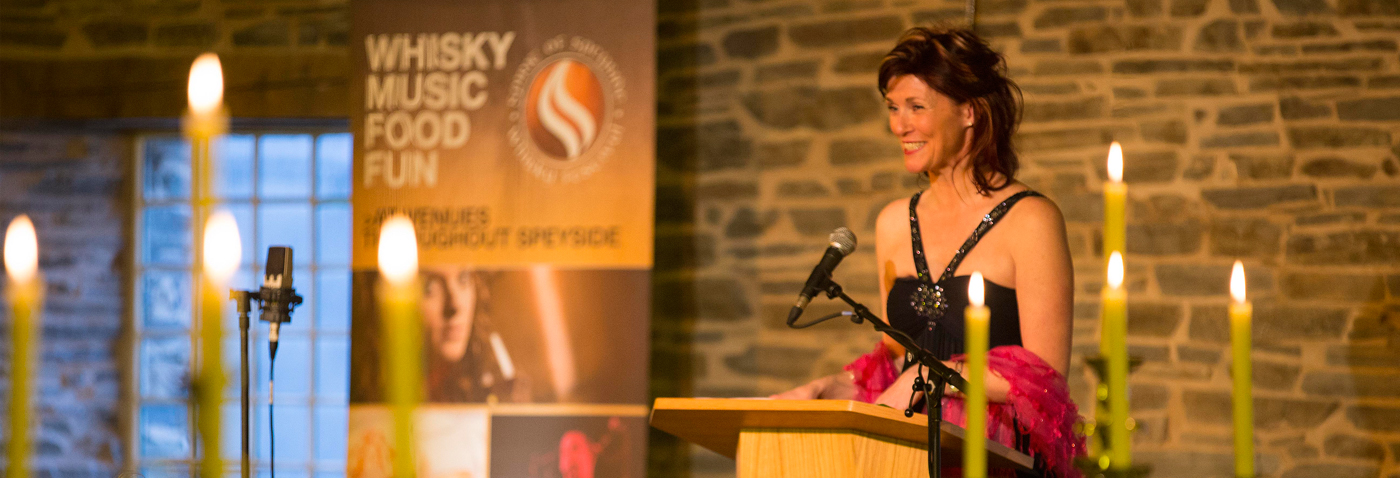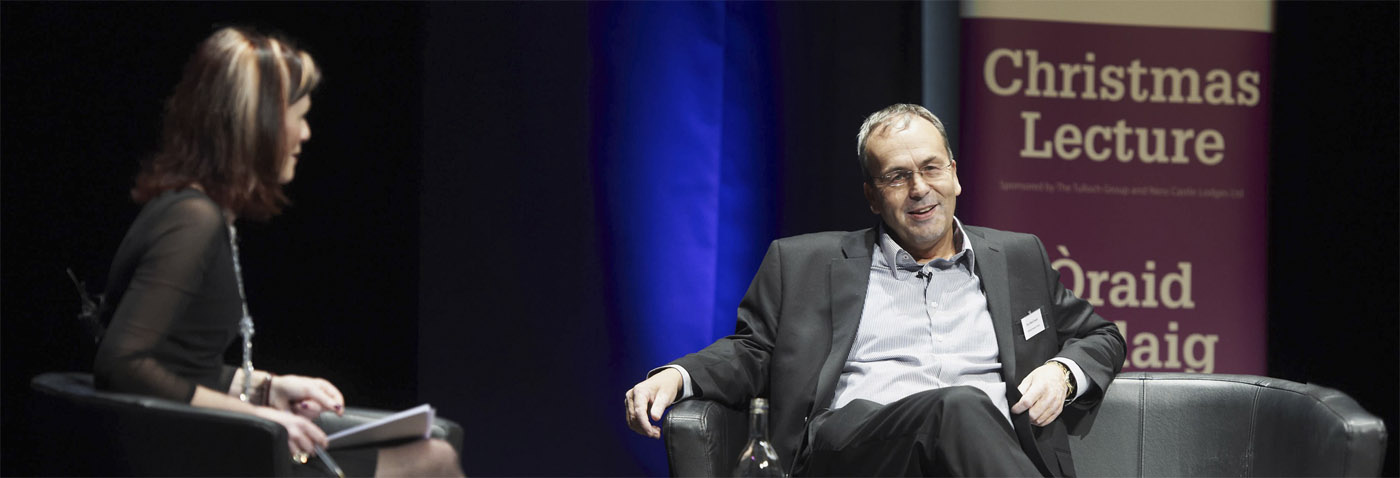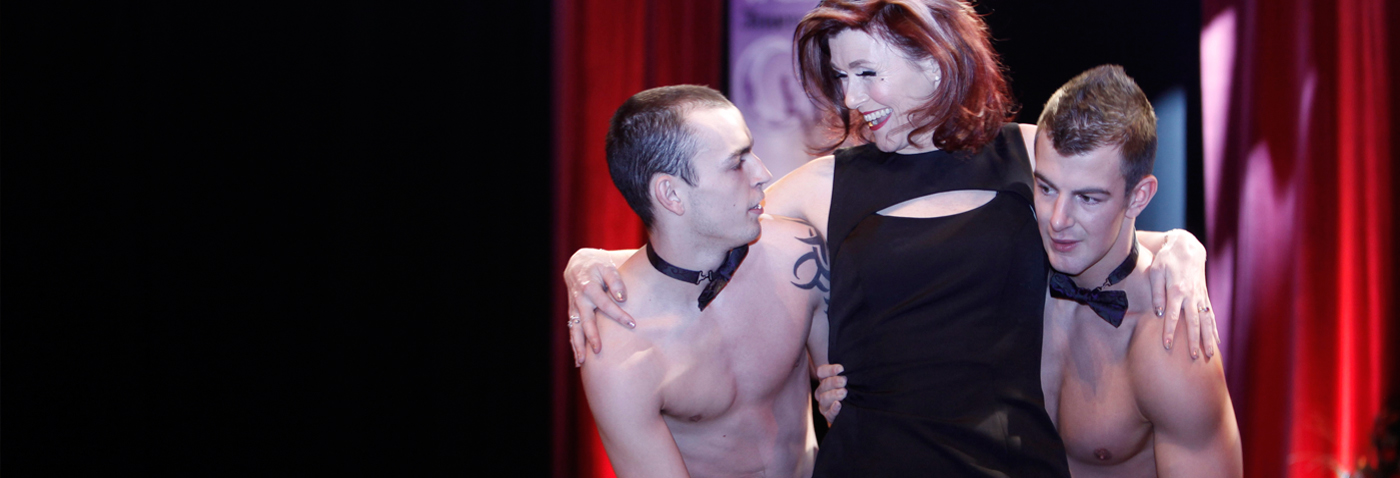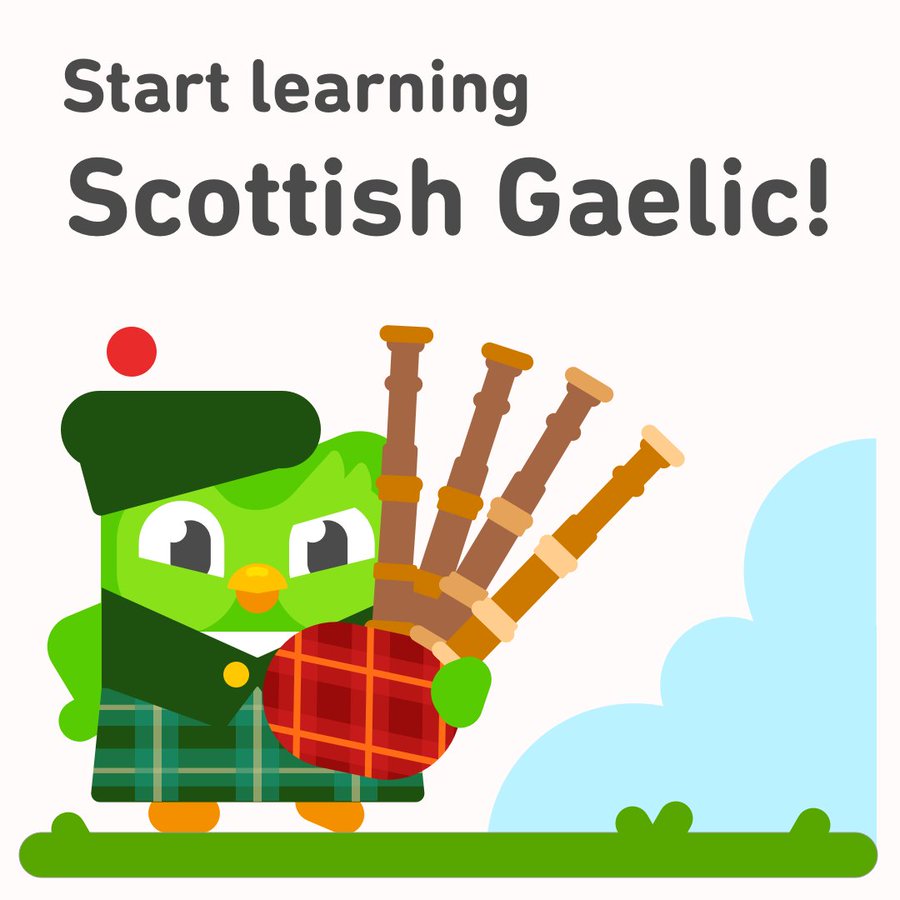 As a child of the 70s I was brought up to believe that ‘I want doesn’t get’ but I am delighted to report that for once I have been proved wrong. I (along with thousands of others) asked for Gaelic to be added to the list of languages available to be learned on Duolingo, and on St Andrew’s Day my wish was granted. In celebration, let me show off what I have learned: Chan eil bò mòr.*
As a child of the 70s I was brought up to believe that ‘I want doesn’t get’ but I am delighted to report that for once I have been proved wrong. I (along with thousands of others) asked for Gaelic to be added to the list of languages available to be learned on Duolingo, and on St Andrew’s Day my wish was granted. In celebration, let me show off what I have learned: Chan eil bò mòr.*
In January I wrote about how a little green owl was helping me to re-learn my school German. Duolingo is a language learning app which is free to use (as long as you can put up with the adverts – it’s a token monthly fee to use ad-free) and which gives users the opportunity to learn scores of different languages in five or ten-minute bursts every day. You can do it at your desk on your laptop, or have it on your phone, and can set the app to send you daily reminders to practice.
The beauty of the app – for me – is that I am always glued to my phone; and usually have a spare few minutes, maybe while waiting at the dentist or just before I go to sleep, to fit in a little daily practice. The progress made seems imperceptible at the time, but over weeks and months it’s amazing how much of my previously almost-fluent German has returned, 25 years after it was last used.
Duolingo must be doing something right; the app has over 300 million users worldwide, learning 94 different languages. It employs 200 people from its HQ in Pittsburg, Pennsylvania, and is currently worth $700million.
Gamified learning
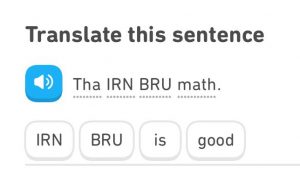
Subliminal advertising is part of the deal…
Lessons are a mixture of listening and speaking (your phone/laptop can hear you!) plus writing in the new language and translating passages into your native one. They are grouped into topics like food and drink, the home and families and, as you progress, into possessive pronouns, conjunctions and adverbs. With repetition, the grammar just seems to seep in as you go. If you begin to struggle the app cools things down a notch, remembering your mistakes and concentrating on the parts you find tricky. The whole thing is ‘gamified’, so you earn points as you practice; points can be exchanged for bonus lessons on topics like flirting or on tests which help you leapfrog a stage if you’re feeling confident.
The app was engaging enough for me to maintain a continuous daily streak for over six months; I broke the chain when I ended up in hospital in Greece, and never got back into the rhythm of it. But this weekend I logged back into the app and received a cheery welcoming wave from the animated green owl who gave me a test, plugged me back in at a level I was comfortable, and we’re off again. Alles Gute, as they say in the app…
Scottish Gaelic has landed!
But the real reason I logged back on was to download and get started on the new Scottish Gaelic course, which was launched on St Andrew’s Day, eight months ahead of the anticipated July 2020 date. Written and voiced by volunteer contributors from across the Highlands and Islands, in the first 48 hours it had already been downloaded by 60,000 users – that’s an impressive number, given that there are only around 60,000 native Gaelic speakers in total.
So, I have dipped my toe in – and my goodness it’s tricky. Not only am I having to learn the vocabulary (cù is a dog, and not a cow which is bò, although a pig, pleasingly is muc) but I’m also having to learn the pronunciation. Piseag (a kitten) sounds a little like pea-shack, and a friend – caraid – sounds like ‘car itch’. But some of it is already familiar from maps – I knew beag and mòr (small and big) from the Assynt hills, and math (good) is familiar from the Gaelic toast, Slàinte math, or good health. I can’t help but wonder if our other national drink had a hand in getting the content together: already I’ve been told Tha IRN BRU math.
I won’t be troubling BBC Alba for my news any time soon…
It will be a while before I can understand Julie Fowlis’ beautiful songs, and I won’t be troubling BBC Alba for my news any time soon. But finally, here is a way in which I can connect more closely with Gaelic language and culture, and all from a free app on the phone in my pocket. Thanks, Duolingo, and particular thanks to those who worked so hard to pull the content together. Fit’s next, Doric?
* Chan eil bò mòr means ‘A cow is not big’. Sorry it’s not more meaningful but I’ve only been learning for a couple of days.

